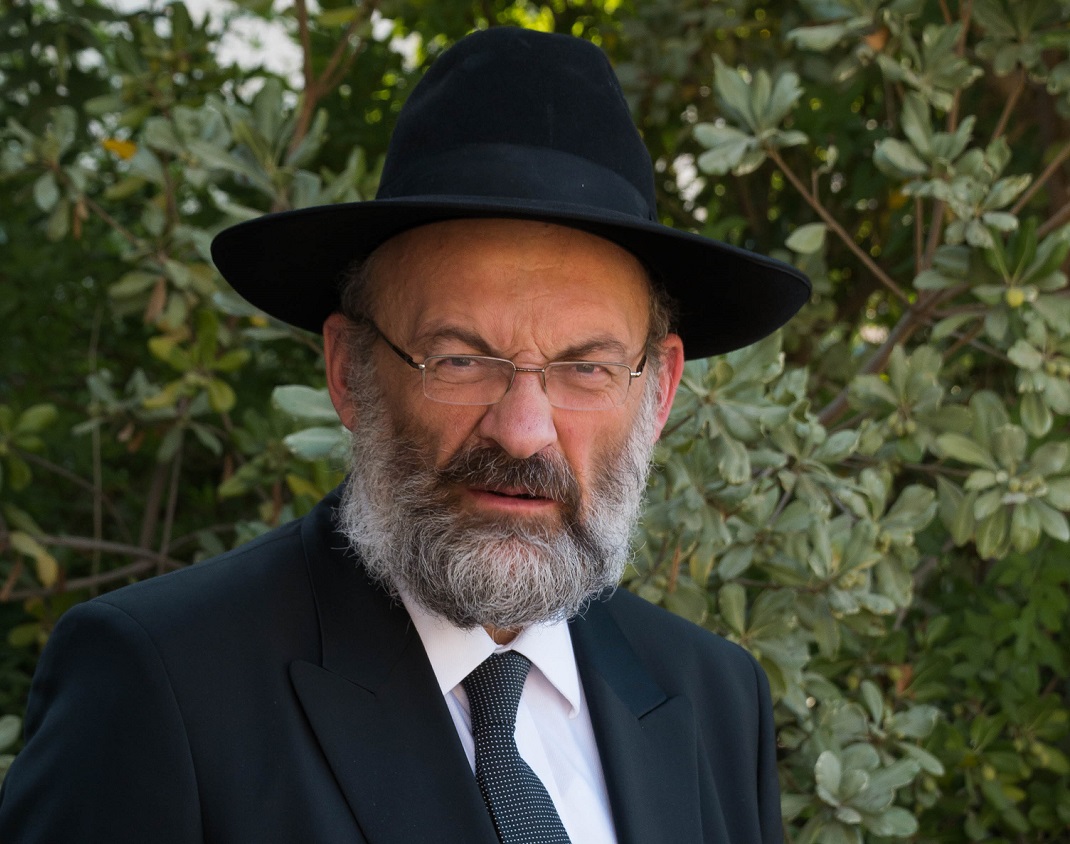Keep the Future in Focus

It couldn’t be clearer that this sudden pandemic of anti-Semitism was orchestrated by HaKadosh Baruch Hu

Prepared for print by Rabbi Eran Feintuch
T
here’s no question about it: The whole Jewish People is under attack. Practically overnight, a tsunami of anti-Semitism has inundated the entire globe. It couldn’t be clearer that this sudden pandemic of anti-Semitism was orchestrated by HaKadosh Baruch Hu. He wants something from us, and we’d better try to figure out what it is.
The anti-Semitism all around us is a wake-up call from Hashem. He caused the entire world to point an accusing finger at the Jewish People. Anti-Semites hate us not for what we do, but for who we are. They can’t tolerate the Jewish character that makes us Jews.
It stands to reason, then, that Hashem wants more from us than fine-tuning our halachic performance. We have many mitzvos that need improvement, and character traits to refine. But this surge of anti-Semitism calls for an avodah that’s more fundamental than our actions or even our middos. The Jewish character is under attack; and Hashem is showing us we need to mend the cracks in our Jewish character.
What is the essence of the Jewish character? We need to answer that question before we can identify the points that need repair.
The essence of a Jew is very deep and multifaceted. Let’s focus on one characteristic that offers tremendous potential for avodah: A Jew always believes in the future. This perspective on life defined the Jewish People from its very inception. The Jews in Egypt suffered unspeakable atrocities. Infants cast into the river, backbreaking labor, and spiritual mutilation were their grim reality.
At the Burning Bush, Moshe told Hashem that the Jews would never believe him that they were going to be redeemed. But Hashem said, “Ekyeh Asher Ekyeh” — something will be, and the Jews know that. The Jews know that the reality they live in will not last forever; the future has something else in store for them.
The present is not eternal; something else will develop. This attitude toward life is at the heart of the Jewish character. Let’s not be superficial. Belief in the future doesn’t mean hope. Hope is only relevant when the present is gloomy, but belief in the future is an approach to every scenario in life. It means awareness that the present situation, whether dire or delightful, is transient. Something different will develop.
A Jew is someone who believes in the future. Now let’s try to understand Hashem’s wake-up call in this light. Hashem has filled the world with anti-Semitism to show us that something in our Jewish character is flawed. If belief in the future is a quintessential aspect of the Jewish character, we have to look to see where our belief in future development is lacking.
If we examine our approach to life, we’ll find that unpredictable change is hardly even on our radar. Let me bring this out with a few practical illustrations from my own life.
I sometimes visit homes that are so fancy, I feel nervous just stepping inside. The owners invested more money than I could ever dream of to fill their palatial abodes with every imaginable luxury. Those people clearly appreciate the present, but do they ever think about the future? If they did, they might reconsider investing so much in a present that could change at any moment.
I once stayed in a newly constructed mansion, and I overheard my hostess jokingly tell a friend: “If Mashiach comes now, building this house will turn out to be a very expensive mistake.” I’m not sure she realized how true her words were.
We would do the same as my hostess, if we had the means. We all want to be at the final destination of life’s journey, to reach our dream state where nothing will change but the out-of-style furniture.
This isn’t merely materialism; our very Jewish character is in question. The Jewish way is to leave space in our life for the changes that an unforeseeable future can bring. I don’t mean you can’t live comfortably, but we shouldn’t reach the point where all our eggs are in the basket of a static present.
This flaw in our Jewish character isn’t just expressed in our approach to gashmiyus. We’re unwilling to invest in any endeavor that doesn’t clearly lead us toward our ultimate goal. My fourth son is one of the greatest learners I know; he’s filled with a desire to understand the Torah more and more deeply. He wanted to share his knowledge and love of Torah with others, so he left his prestigious kollel to teach.
Do you know what position he accepted? He’s a third-grade rebbi. People ask me, almost stuttering, “Are you… happy… with your son?” They think such a talented yungerman becoming a third-grade rebbi is a tragedy. He should have stayed in kollel till he was offered a position commensurate with his abilities.
That’s because they don’t believe in the future! They only look at the present. And my son’s position isn’t the “shteller” he always dreamed of, nor does it promise to lead him there.
We feel stuck if we’re forced into an occupation that isn’t what we ultimately want to do. We want to be, right now, at that final destination where we can remain, happily ever after. But if we truly believe in the future, why not start off with something less? You won’t stay there forever if you’re meant to do more. You can’t know what, but something will develop. We don’t think about that, because we’re losing touch with our Jewish character.
Our flawed outlook on shidduchim stems from the same problem.
My daughter was an exceptional girl, and everyone was sure she would get a stellar shidduch. When she got engaged, all her friends — and mine — were shocked. They saw a boy who hadn’t yet accomplished anything remarkable, from a home with lower standards of frumkeit than hers. But my daughter chose him, because she saw a person who wanted to grow. Her friends rolled their eyes and told her, “You don’t understand shidduchim.”
Young people want to marry into a family with the best last name, to win the most accomplished bochur, the girl with the perfect job or wealthy family. We want our children to be in the perfect family, to have the picture-perfect spouse. We don’t look down the road, to see what surprising future might emerge from the present. If our Jewish character were sound, we’d see things differently. A boy who’s really interested in growing — isn’t that the best shidduch imaginable?
So much of our frustration in child-rearing is due to our myopic focus on the present. We yell at our kids to stop their mischievous antics, without considering what might develop from their roguery down the road. One of my sons used to climb on everything in the house. He ascended couches, tables, and bookshelves like a mountaineer. It was frustrating to say the least, but I tried to keep in mind that something unforeseen might grow out of that annoying hobby.
Fifteen years later, I saw how he “climbed” a Tosafos with the same vigor and tenacity he used to climb the furniture. Ekyeh Asher Ekyeh — something will always develop.
If we bring future development into our field of vision, we’ll view our children, our professional status, and life itself in a more authentic way. Let’s listen to Hashem’s call, and try to become more Jewish. If we do that, we may trust that although the present state of Klal Yisrael is bleak, a better future will soon sprout from this unlikely ground.
(Originally featured in Mishpacha, Issue 1006)
Oops! We could not locate your form.







